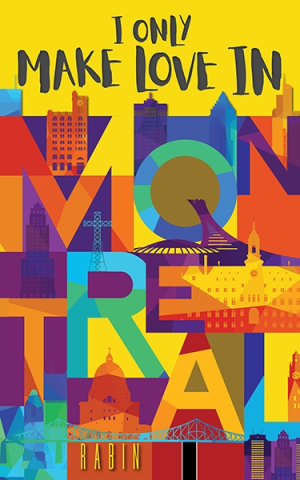
I Only Make Love in Montréal
The characters of Rabin’s gratifying short story collection share roots in a harried culture.
Rabin’s hyperrealistic short story collection I Only Make Love in Montréal depicts Caribbean life and the impacts of the absence of human rights.
Beginning with ordinary situations before revealing deeper intentions, this endearing collection depicts Caribbean societies and locales from the perspectives of anonymous young people. It builds into an exposé of classism, racism, and discrimination that climaxes with violence, but ends with promise. Its first entry, “Lawrence,” is a child’s peek into a poor family’s life, with an exuberant mother who likes attention. The family has a mousy neighbor, and the children tattle on each other.
“Dogla” focuses on fence-jumping and fruit-stealing from a hoarding matron, Mrs. Johnson; it contains sweet lines, like “we picked our stars and named them for ourselves.” A child views Mrs. Johnson’s death in a detached way, calling out the particulars of Catholic burial versus Hindu cremation. With “Sweet Tambrand Whip,” the collection’s grip on racism and classism tightens. It’s a story about child abuse masquerading as Catholic education, in which a child talks about gathering the sticks that the headmaster will punish them (for offenses like having dirty shoes) with.
“The Abattoir” views a slaughterhouse at killing time, with a child observing dripping blood and pitch black coffee. In “When Black Men Kiss,” about the loss of love, a seaside day wanes, and a gay man is beaten and dies, proclaiming “I cause political turmoil with my blackness.” The upbeat final story is the only one told from an adult’s perspective. Its narrator moves to Vancouver, where they feel unleashed. They walk the streets of the Gay Village with zeal, showing interest in hygiene and expensive fashion. The comparison of this flirty narrative to the preceding stories is stark; the narrator’s relief at having survived is palpable.
The book’s language is pared down and sincere. Often, the narrators sound knowing, as though they are aware of the seeping away of time. They grapple with their innocence and with the dangers around them; they expose real instances of discrimination. Their voices are realistic in their youthfulness, and the internal rhythms of their narrations blend well with island imagery, as of pounding steel pans, blowing saris, galvanized steel, and ripe fruit. But their individual characteristics are blurred; most allude, at most, to their ages, genders, and sexual orientations. A few free verse poems come throughout the collection, heightening its tone. Their breviloquence concerns the constant threats that the characters face; their lines enunciate the urgency of addressing human rights violations.
The characters of Rabin’s gratifying short story collection I Only Make Love in Montréal share roots in a harried culture.
Reviewed by
Samantha Ann Ehle
Disclosure: This article is not an endorsement, but a review. The publisher of this book provided free copies of the book and paid a small fee to have their book reviewed by a professional reviewer. Foreword Reviews and Clarion Reviews make no guarantee that the publisher will receive a positive review. Foreword Magazine, Inc. is disclosing this in accordance with the Federal Trade Commission’s 16 CFR, Part 255.
